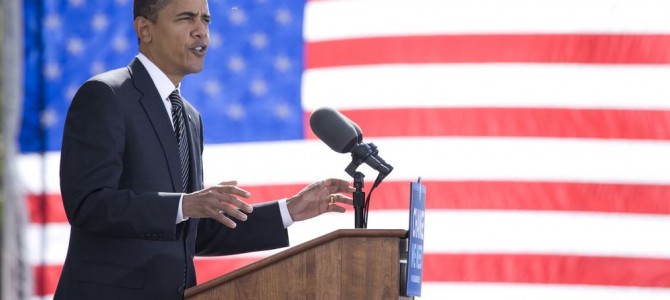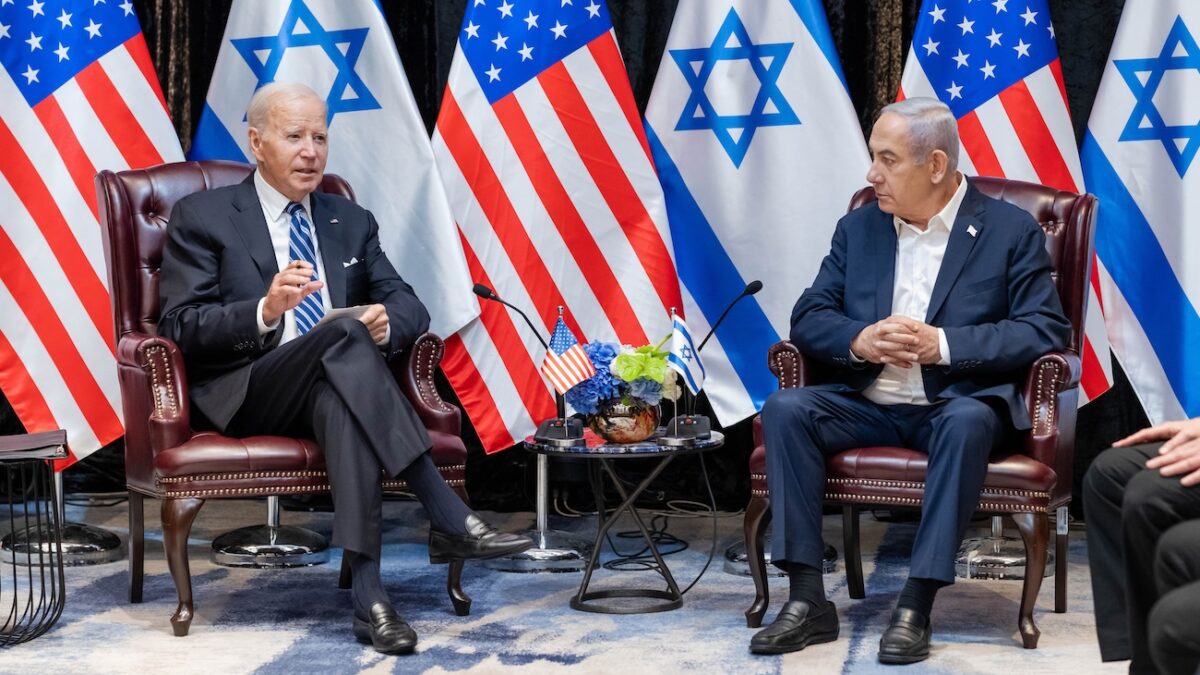
Over the weekend, New York Times Magazine ran a profile of Ben Rhodes, President Obama’s deputy national security adviser for strategic communications. Amidst the biographical details about his life and work came the revelation from Rhodes himself that the Iran deal was misleadingly framed to deceive the American people into accepting it.
Rhodes openly acknowledges manipulating the press by positioning “arms-control experts” in think tanks who were then fed what to say to the journalists Rhodes sent their way. This created what he calls an “echo chamber.” He admits the administration pulled the wool over the eyes of the American people and media to seal the deal. He even smugly describes how this deception campaign drove opponents of the Iran deal wild with frustration.
Rhodes created a narrative that the Iran nuclear deal was pursued only once Iranians had elected a moderate president, Hassan Rouhani, whom President Obama felt would be a good negotiating partner. The truth, it turns out, is that Obama had the deal in mind from the beginning of his presidency. He just had to wait for the right narrative arc to present itself. It was, from the start, the lynchpin in his plan for America’s eventual disengagement from the Middle East, something Rhodes and Obama feel passionately about. The Iran deal was always going to happen, because Obama’s vision of his own foreign policy legacy required it.
Soundbyte Over Substance
According to one of his colleagues who was interviewed for the profile, throughout the negotiation of the Iran deal Rhodes would ask himself how this or that would affect how they sell the deal to the public, and what it would do to the “narrative.” Rhodes framed it to the American people as a choice between peace and war. If they don’t support this deal, we will never have peace with Iran, a false dichotomy that preyed on good people’s desire to avoid war.
This admission of crafting a narrative for political ends seems to confirm what I have argued in the past, that Obama is more interested in the story, the headline, and shaping his legacy than with the merits or success of his policies. He cares more about how it sounds on the news when the anchor announces “Obama has negotiated a nuclear deal with Iran,” than with the consequences of his actions, or the deceptions he used to get there.
This was true for his signature legislation, the Affordable Care Act, which Obama and Democrats shoved through Congress by promising Americans there would be no hikes in premiums and if they liked their doctor they could keep their doctor. Both promises were, of course, blatant lies. But this has been Obama’s modus operandi for the past seven years: if it sounds good and will convince the people, Obama will say it.
Rhodes, a one-time aspiring novelist who was in a master’s of fine arts writing program in New York when the Twin Towers were hit, is an ideal candidate to help Obama with these fictional endeavors. But foreign policy isn’t a novel or short story. It doesn’t have well-timed arcs and neatly arranged endings. It’s a wild and unruly thing, as the last seven years of the Obama presidency have clearly shown.
Despite Obama’s best efforts to make the “story” of his presidency play out—as the president who got us out of the Middle East—reality had other plans. It was his dogged insistence on sticking to the script and not adapting his policies that has gotten us into the situation in which we now find ourselves with ISIS and the ongoing Syrian civil war.
All We Need Is PR, Not Experience
The Rhodes profile also reminds us how dangerous it is to have a president who won’t take the advice of experts. Rhodes discusses how he and Obama are of one mind when it comes to their attitude toward the foreign policy establishment, or what the erstwhile novelist calls “the blob.” They want no part of it. Rhodes has scorn for former Defense Secretary Robert Gates and former Secretary of State Hillary Clinton, and says working on the Iraq Study Group convinced him the foreign policy decision makers are morons.
Obama and Rhodes are a match made in heaven: they both think that people who have devoted their lives to foreign policy are beneath them. In 2014, Kimberly Strassel detailed the president’s persistent eschewing of experienced national security and foreign affairs advisers, opting instead for political operatives like David Axelrod or Tom Donilon. She points to the havoc this caused abroad because of Obama’s unwillingness to ask for or take advice from people with training, knowledge, and experience in national security.
Not only is this approach to foreign affairs dangerous, it also shows a tremendous contempt for the American people. Rhodes says, “In the absence of rational discourse, we are going to discourse the [expletive] out of this,” implying that he thinks the American people aren’t capable of rationally sorting out the pros and cons of the Iran deal, that they more or less don’t know what’s good for them.
Rhodes and Obama, however, feel confident that they do. Since rational discourse isn’t, according to Rhodes, an option, he’ll just make up a story that will help Americans reach the “right” conclusions. The fact that Rhodes admits these tactics so breezily shows an even greater disdain for the public than does Obama, who at least has the decency to pretend he’s engaging in rational discourse.
Just Keep Spinning
On Sunday evening, after strong reactions from the press, Rhodes tried to walk back some of his comments, posting on Medium that he and the administration had not knowingly misled anyone. So how does he square this with what he said in the profile? Maybe he thinks he can just “discourse” this controversy away.
Not surprisingly, when asked about Rhodes’s comments on Friday, White House Press Secretary Josh Earnest insisted the administration is proud of the “principled” and “fact-based” case they made to the American people, despite beginning negotiations in secret in 2012. He chalked the negative reaction to the profile up to “sour grapes” from those who opposed the Iran deal. The administration, it seems, is going to keep its narrative firmly in place, regardless of what facts come to light.
Rhodes acknowledges in the interview that while he has no scruples about the strategies he’s employed to enact his and Obama’s vision of America’s role in international affairs, he would be uncomfortable if similar methods were used by another administration (presumably a Republican one). But as is too often the case, the Obama administration thinks little of how its own tactics or actions—executive overreach, for example—set a precedent moving forward.
Imagine if Donald Trump becomes president. Will he, too, draft novelists to weave a tale to convince the American people to deport 11 million illegal immigrants or start a trade war with China?
Are we so cynical about politics that we have abandoned the “sober, reasoned public debate” that Rhodes says is preferable but, according to him, “impossible”? For the sake of our fragile democracy, I hope not.









